You are viewing our site as a Broker, Switch Your View:
Agent | Broker Reset Filters to Default Back to ListThe Eagles Gather, Learn, Share and Adapt
May 15 2013
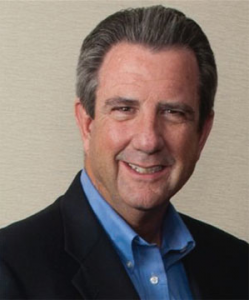 It was the 26th iteration of the Gathering of Eagles. The conference, a Real Trends 'by invitation only' conclave, is generally recognized as the premiere learning and networking event for those within the top 250 North American real estate brokerages.
It was the 26th iteration of the Gathering of Eagles. The conference, a Real Trends 'by invitation only' conclave, is generally recognized as the premiere learning and networking event for those within the top 250 North American real estate brokerages.
Real Trends entrepreneur and "Gathering" impresario Steve Murray set the tone during his opening. "We are here to learn and share together."
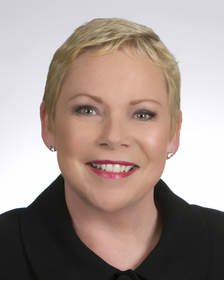 Sherry Chris, CEO of Better Homes and Gardens Real Estate (BHG), followed up and built on that theme with a creative facilitation of a panel of brokers from Atlanta, Houston, Boulder and Austin on the "New Generation Brokerage Business Model."
Sherry Chris, CEO of Better Homes and Gardens Real Estate (BHG), followed up and built on that theme with a creative facilitation of a panel of brokers from Atlanta, Houston, Boulder and Austin on the "New Generation Brokerage Business Model."
The room was packed as Sherry, using the "Are You an Alpha or a Beta Brokerage?" title, carefully wove the comments of both the panel members and a number of brokers in the audience into a profile of what the new business model was going to look like. The discussion provided information regarding cultures that work in the new era, space allocations, the use of new media, branch staffing levels, emerging technologies, orchestrating company growth and leading edge customer service practices.
The panel included both BHG brokers and non-BHG brokers. The industry should appreciate the fact that Sherry and BHG use sponsorship resources to bring valuable information and learning experiences to everyone in the industry, regardless of franchise or brand.
The program next journeyed into what might best be called the uncharted waters of today's mortgage industry. Representatives from Wells Fargo, CitiBank, and Shelter Mortgage painted a picture of a mortgage industry caught between legislative imperatives and regulatory unknowns.
The situation is simple, but its ramifications are complex. The marketplace is still in the process of responding the mortgage crisis of 2007 and 2008. Congress has responded with what it believes is an acceptable solution in the Dodd-Frank Act. But, as is the fate of all legislation, the implementation of the new law through a regulatory scheme is now in the hands of a bureaucracy known as the Consumer Financial Protection Bureau (CFPB). History tells us that, in all likelihood, the CFPB will swing the regulatory pendulum too far in its initial efforts and that, at some undetermined point in the future, these initial response steps will be ameliorated by experience, at which time a more realistic regulatory process will emerge.
In the meantime, two undesirable results could and might well occur. If the initial mortgage eligibility rules are too strenuous, the consumer's current lack of comfort in the housing market will be validated and the housing situation could, once again, stall the greater economy. The second dilemma arises from the fact that during the interim period many mortgage firms, brokerages, loan officers and/or agents could be using policies, procedures and practices that will be ultimately found illegal under the new law or regulations.
The advice of the panel members was clear. At the present time, there are adequate mortgage funds available for properly qualified borrowers. However, the current lack of clarity regarding what is a legitimate procedure under the Dodd-Frank Act results in an information vacuum. All involved in this situation should default to very conservative practices. Compliance will be the ultimate skill set over the near term future. Beware of the regulators' need to pursue high profile cases in order to make their point and establish their reputation. You don't want to be the poster child for the new mortgage reality.
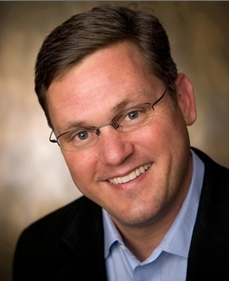 Tommy Spaulding, a renowned speaker, New York Times bestselling author, executive coach, entrepreneur, and leadership consultant shared with the attendees the value of building lasting, genuine business (and personal) relationships through his motivational and real world experiences.
Tommy Spaulding, a renowned speaker, New York Times bestselling author, executive coach, entrepreneur, and leadership consultant shared with the attendees the value of building lasting, genuine business (and personal) relationships through his motivational and real world experiences.
John Ikard, President of FirstBank Holding Company, shared with the attendees the amazing details of what may well be the ultimate corporate culture. The bank, one of the most successful in the country, is owned by a combination of 46 officers and directors, each of whom has spent virtually their entire career in the banking sector, working their way up organizations from one position to another. The insight he offered provided a glimpse into the unique role that a fully developed culture can play in determining a business's strengths and weaknesses.
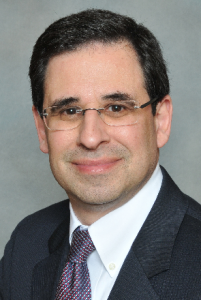 Dr. Eric Belsky, Managing Director of the Joint Center for Housing Studies at Harvard was clearly the most prolific of the "Gathering" presenters. He unselfishly shared volumes from his encyclopedic memory on various housing issues.
Dr. Eric Belsky, Managing Director of the Joint Center for Housing Studies at Harvard was clearly the most prolific of the "Gathering" presenters. He unselfishly shared volumes from his encyclopedic memory on various housing issues.
He first spoke to the difficulties currently surrounding the mortgage process, previously discussed above. He then went on to report that the Center's research has established that Americans are just as committed to homeownership as they have ever been. Contrary to a number of well-circulated stories, he reported that Americans have not adopted a fondness for rental lifestyles. In any event, the housing market has heated up and will stay there absent a disaster. "People really want to pursue homeownership." The will is clearly there; the question is whether there is a way?
He addressed the issue of housing supply. "We are actually in an under supply market." Look at how much housing starts went down. 800,000 is the median and acceptable annual level. We have been below that on several years recently. Lots more households, if they occur, should require more starts. Real Trends provided the attendees with a copy of Dr. Belsky's slides that offer a virtual goldmine of information.
A panel of high performance agents from Florida, Minneapolis, Houston and Fort Collins provided valuable insight into the thoughts and motivations of their peers relative to their broker and brokerage relationships. Why have they not gone into the brokerage business? What do they look forward in the market ahead? They talked about lifetime learning and the importance of focus. Issues regarding the support of core services and growing role of third party Internet-based services were discussed.
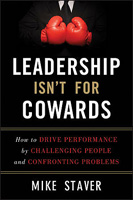 Behavioral psychologist Dr. Michael Staver made a presentation taken from his current book, Leadership is not for Cowards. He made a number of excellent points, including the fact that leadership problems tend to come from the need to be in control, the need to be right, and the need to be all things to all people
Behavioral psychologist Dr. Michael Staver made a presentation taken from his current book, Leadership is not for Cowards. He made a number of excellent points, including the fact that leadership problems tend to come from the need to be in control, the need to be right, and the need to be all things to all people
An especially timely presentation came from the data integration panel. Jay Gaskill, Ian Morris, Lorne Wallace and Jim Zellmer made this subject come alive in an interesting and relevant manner. As the discussion evolved, it became increasingly obvious that virtually every lesson learned during the Gathering up to this moment was, in some way, dependent upon the broker's ability to access and evaluate data against established standards of reporting, performance and accountability. Certainly the good news is that beta brokerages are improving on their use of data integrated into the firm's management system.
One of the most eagerly anticipated program segments was the session dedicated to the future of real estate portals. Pete Flint of Trulia, Errol Samuelson of realtor.com®, Greg Swartz of Zillow and Andy Woolley of Homes.com did a terrific job of presenting what is clearly one of the most contested subjects in today's North American marketplace. One of the first subjects discussed was the amazing capitalization level that some of the portals have reached and the relatively short time it has taken to create them.
Predictably, the discussion quickly arrived at its most contested point. Are the portals practicing or preparing to enter the brokerage business? It is this question that ignites the ongoing discussion. The portals take the position that they have no interest in being in the brokerage business.
They counter by suggesting that there are five steps in the consumer experience that must be addressed (dreaming, gathering, initiating, transacting and owning). The portals point out that the large brokerage community has focused all of its attention on the transacting phase, thus leaving the other four phases open. They further contend that they are investing millions of dollars, and hiring the best people in the country, to meet these consumer needs. They conclude by suggesting that unless the brokerages want to spend millions of dollars to duplicate their efforts, brokerages should partner with portals to meet consumer demands and expectations.
The brokerage community, on the other hand, points to certain relationships and competencies that the portals are developing and suggests that these efforts don't appear to be a 'baby food factory.' The discussion continues.
In 2013, for the 26th consecutive year, the eagles soared, the eagles learned, and the eagles shared their unique perspectives with the eaglets. This year's program demonstrated that the Eagles of our industry are a tenacious group, capable of transition and adaptation. They are a marvelous group and this was an awesome program. Hats off to Steve Murray for having the ability to keep this tireless flock in the air and on their course.
To view the original article, visit the Recon Intelligence Services blog.









